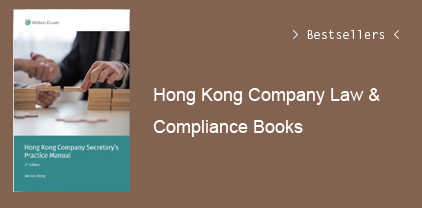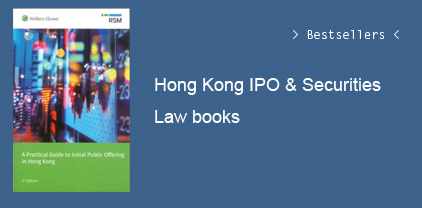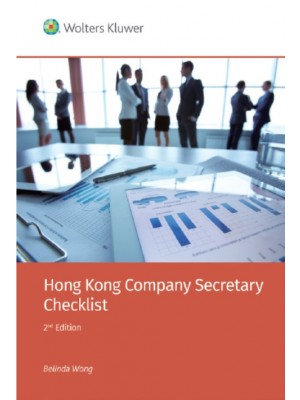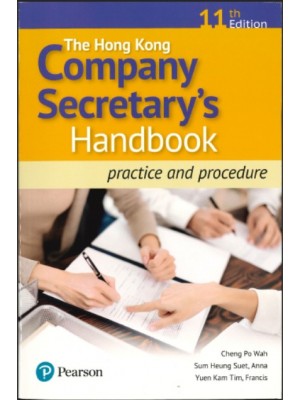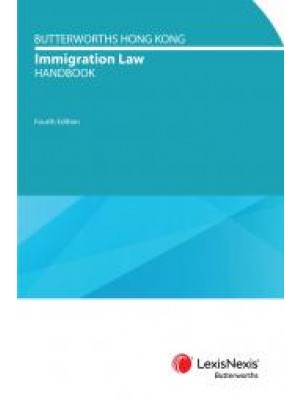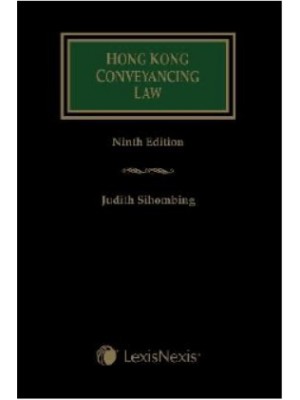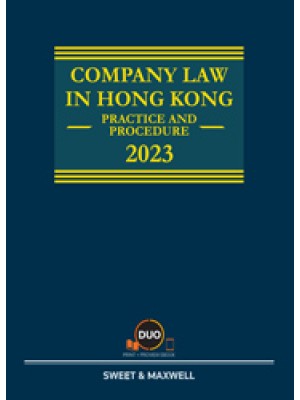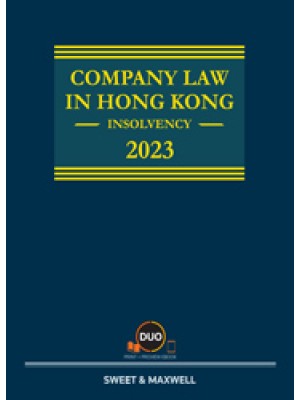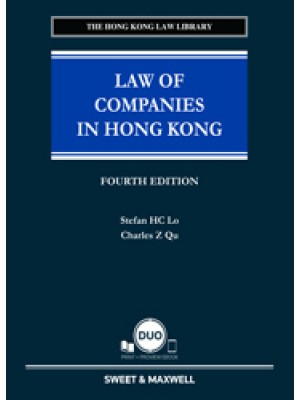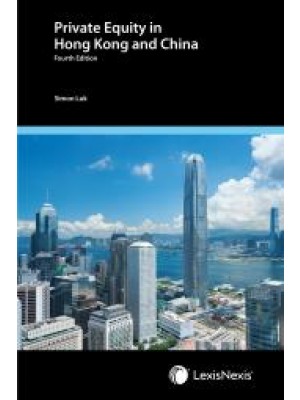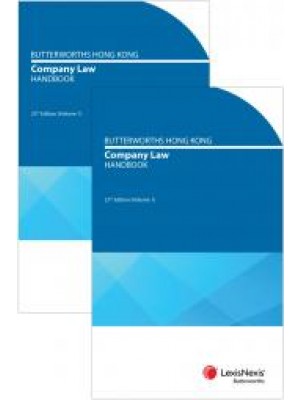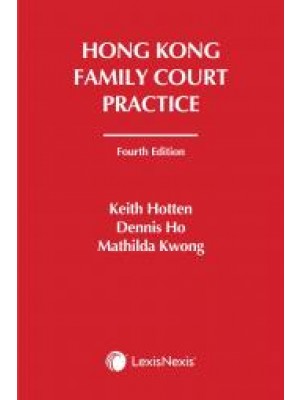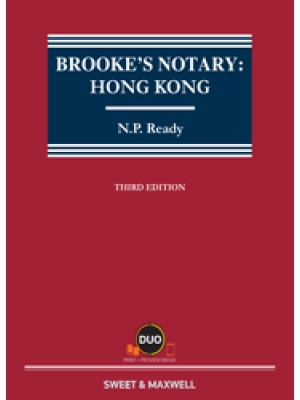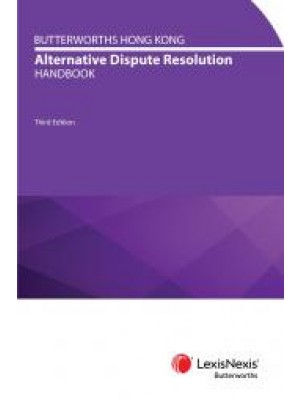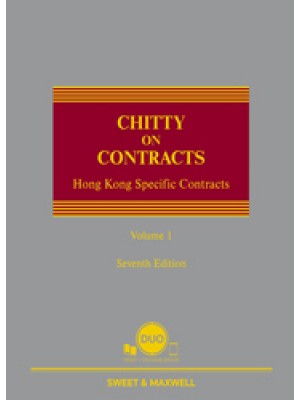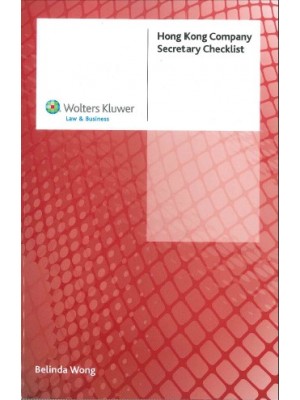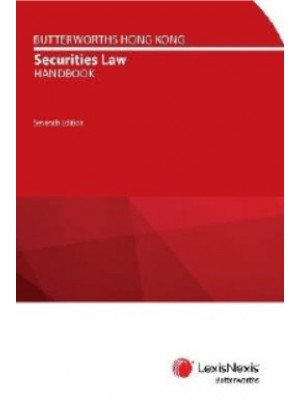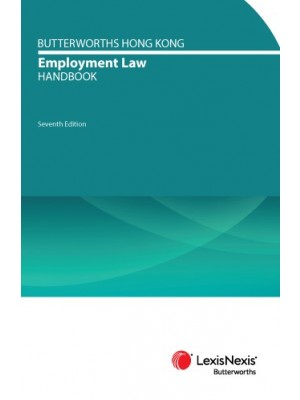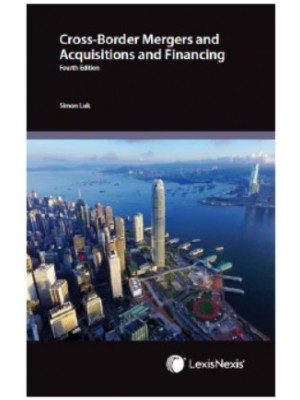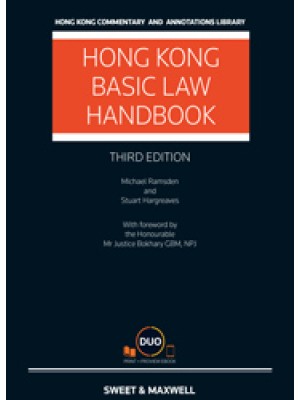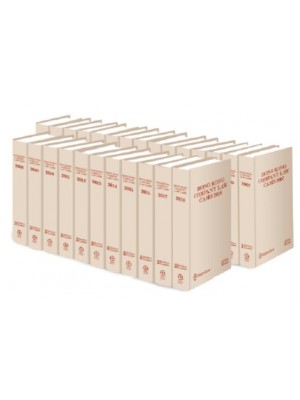Summary Table of Contents
Detailed Table of Contents
Foreword
Professor Theóphilo de Azeredo Santos
About the Authors
About the Collaborators
Acknowledgments
Chapter 1 Scope of the Book
Chapter 2 General Overview
2.1. Historical Background of Arbitration In Brazil
2.1.1 Early Legal Framework
2.1.2. The Civil Code of 1916 and the Code of Civil Procedure of 1973
2.1.3. The Arbitration Bill
2.1.4. The Arbitration Law of 1996
2.1.5. Constitutionality of the Arbitration Law of 1996
2.1.6. Applicability of the Arbitration Law of 1996 to Contracts Signed Before Its Approval
2.1.7. The Civil Code of 2002
2.1.8. The New Code of Civil Procedure
2.1.9. Reform of the Brazilian Arbitration Act
2.1.10. Vetoes to the Reform
2.2. Definition and Nature of Arbitration Under the Brazilian Legal Framework
2.2.1. Definition of Arbitration
2.2.2. Legal Nature
2.3 The New Mediation Law
2.3.1. Basic Principles and Mediation Between Private Parties
2.3.2. Mediating Disputes Against the State
Chapter 3 Arbitrability
3.1. Exposition of the Issue
3.2. Subjective Limits to Arbitration – Who Can Be a Party to Arbitration
3.3. Objective Limits to Arbitration - Matters that Cannot Be Arbitrated
3.3.1. Arbitration in Consumers' Relationships and Adhesion Contracts
3.3.2. Arbitration of Agency Agreements
3.3.3. Arbitrability of Labor Disputes
3.4. Arbitration Involving State Entities
3.4.1. Arbitration in Concession of Public Services
3.4.2. Arbitration in Oil and Gas Exploration and Production Agreements
3.4.3. Arbitration in Telecommunication Disputes
3.4.4. Arbitration in Transportation Disputes
3.4.5. Arbitration in Public-Private Partnership
3.4.6. Arbitration in the Port Sector
3.5. Procedure for Preliminary Questions that Cannot Be Arbitrated
Chapter 4 Law Applicable to the Merits
4.1. Choice of Substantive Law
4.1.1. Choice of Foreign Law in Domestic Arbitration
4.1.2. Applicable Law if the Contract Is Silent
4.2. Public Policy
4.3. Judgment In Equity Ex Aequo Et Bono
4.4. General Principles of Law, Commercial Usage, Custom, International Business Principles and Lex Mercatoria
4.4.1. General Principles of Law
4.4.2. Trade Usage and Customs
4.4.3. International Business Rules
Chapter 5 Arbitration Agreement
5.1. Arbitration Agreements
5.1.1 Effects of Arbitration Agreements
5.2. Arbitration Clauses: Nature and Validity
5.2.1 Formal Requirements for the Validity of Arbitration Clauses
5.2.2. Representation of a Party through Power of Attorney
5.2.3. Lack of Signature of a Party in the Contract Containing the Arbitration Clause
5.3. Autonomy of Arbitration Clauses
5.4. Negotiation and Drafting of an Arbitration Clause
5.5. Scope of the Clause
5.6. Language
5.6.1. Applicable Language if the Arbitration Agreement Is Silent
5.7. Seat of Arbitration
5.7.1. Seat of Arbitration, in the Absence of an Agreement
5.7.2. Performance of Procedural Acts in Places other than the Seat of Arbitration
5.8. Efficacy of Burdensome Arbitration Clauses
5.9. Pathologic Arbitration Clauses
5.10. Effects of Arbitration Clauses on Third Parties
5.10.1. Effects of an Arbitration Cclause on a Contract's Assignee
5.11. Specific Performance of Arbitration Clauses
5.11.1. Controversy as to the Need to Seek Judicial Enforcement, in the Case of a Full Arbitration Clause
5.11.2. Previous Notice Before Judicial Enforcement
5.11.3. Procedure for Judicial Enforcement of Arbitration Clauses
5.11.4. Judicial Enforcement of Arbitration Awards Involving Contracts Executed Before the Arbitration Law of 1996
5.12. Submission Agreement
5.13. Termination of the Arbitration Agreement
5.13.1. Bankruptcy
Chapter 6 Arbitrators
6.1 Requirements that Should Be Met In Order to Serve as Arbitrator
6.2 Number of Arbitrators
6.3 Choosing the Arbitrators
6.3.1 Knowledge of the Subject Matter
6.3.2 The Arbitrator's Nationality
6.3.3 Language
6.4 Chair of the Arbitral Tribunal
6.5 Co-Arbitrators
6.6 Secretary of the Arbitral Tribunal
6.7 Procedure for Appointment of Arbitrators
6.7.1 Arbitrator Appointment in Institutional Proceedings
6.7.1.1 List of Recommended Arbitrators
6.7.2 Arbitrator Appointment in Ad Hoc Proceedings
6.7.3 Arbitrator Appointment in Multiple-Party Arbitrations
6.7.4 Judicial Court Assistance in Appointment
6.8 Arbitrators' Duties
6.8.1 Competence
6.8.2 Diligence
6.8.3 Discretion
6.8.4 Independence and Impartiality
6.8.4.1 Neutrality
6.8.5 Duty to Disclose
6.9 Challenge of Arbitrators
6.9.1 Grounds for Challenge
6.9.2 Procedure for Challenge
6.9.3. Confirmation of Arbitrators
6.10 Replacement of Arbitrators
6.11 Arbitrators' Liability
6.11.1 Civil Liability
6.11.2 Criminal Liability
6.12 Arbitrators' Fees
Chapter 7 Conduct of Arbitral Proceedings
7.1. Procedural Rules
7.1.1. Subsidiary Application of Foreign Procedural Rules
7.2. Mandatory Principles
7.2.1. Full Defense and Proper Response (Contraditório)
7.2.2. Equal Treatment of the Parties
7.2.3. Arbitrators' Impartiality and Free Convincement
7.3. Confidentiality
7.3.1. Confidentiality and Administrative Law Entities
7.4. Representation of the Parties
7.5. Initial Written Submissions
7.5.1. Request for arbitration
7.5.2. Summons
7.5.3. Answer to the Claim
7.5.4. Respondent's Default
7.5.5. Counterclaims
7.5.6. Cross-claims
7.5.7. Amendment to the Claim or Counterclaim
7.5.8. Joinder of Additional Parties
7.5.9. Further Written Statements
7.6. Multiple-Party Disputes
7.6.1. Compulsory Joinder
7.6.2. Permissive Joinder
7.6.3. Consolidation of Claims
7.7. Third Party Intervention
7.8. Formal Institution of the Arbitration
7.9. Pleas Against Jurisdiction and/or the Arbitrator
7.10. The Arbitral Tribunal's Competence to Rule on Its Own Jurisdiction (“Competence-Competence”)
7.10.1. Anti-suit Injunctions
7.10.2. Conflict of Competence
7.11. Terms of Reference
7.12. Mandatory Conciliation of the Parties
7.13. Coercive and Urgent Measures During Arbitration
7.13.1. Urgent Measures Before the Formation of the Arbitral Tribunal
7.13.1.1 Emergency Arbitrators
7.13.1.2. Revocation by an Arbitration Tribunal of Preliminary Injunctions Granted by a Judicial Court
7.13.2. Coercive and Urgent Measures After the Formation of the Arbitral Tribunal
7.13.3. Venue for Coercive and Urgent Measures
7.14. Interlocutory Orders
7.14.1. Mandamus Against Interlocutory Orders
7.15. Summary Judgment
7.16. Submission of Evidence
7.16.1. Statements of Representatives and Witnesses
7.16.2. Request for Documents and Discovery
7.16.3 Professional Privilege
7.16.4. Expert Examinations
7.17. Hearings
7.17.1. Hearing Dates
7.17.2. Place of the Hearing
7.17.3. Language of the Hearing
7.17.4. Calling of Witnesses or the Parties' Representatives to Appear at the Hearing
7.17.5. Attendance at Hearings
7.17.6. Hearing Procedure
7.17.7. Cross Examination at Hearings
7.17.8 Record of the Hearing
7.17.9. Post-hearing Submissions
7.18. Closing the Proceeding
7.19. Repetition of Evidence, in the Case of Arbitrator Replacement
Chapter 8 The Award
8.1. Time Limit to Issue the Award
8.1.1. Extension of the Time Limit
8.2. Formal Requirements of the Award
8.2.1. Summary of the Proceeding
8.2.2. Reasons for the Decision
8.2.3. Decision
8.2.3.1. Liquidated Awards
8.2.3.2. Interest and Indexation for Inflation
8.2.4. Date and Place of the Award
8.2.5. Signature of the Arbitrators
8.2.6. Practical Note on Drafting an Award
8.2.7. Tied Decisions
8.2.8. Dissenting Arbitrator's Opinion
8.3. Partial Arbitral Awards
8.4. Settlement Award
8.5 Scrutiny of the Award by the Arbitration Institution
8.6. Delivery of the Arbitral Award
8.7. Correction and Clarification of the Award
8.8. Res Judicata in Arbitration
8.9. Application to Set Aside an Arbitral Award
8.9.1. Invalidity of the Arbitration Agreement
8.9.2. Incompetence of the Arbitral Tribunal
8.9.3. Formal Defects of the Award
8.9.4. Awards Outside the Scope of the Arbitration Agreement or that Do Not Decide All the Issues Submitted to Arbitration
8.9.5. Criminal Misbehavior of the Arbitrators
8.9.6. Failure to Issue the Award within the Applicable Time Limit
8.9.7. Breach of Procedural Principles
8.9.8. Procedure for Such Application
8.9.9. Partial Invalidity of the Arbitral Award
8.9.10. Application to Set Aside Foreign Arbitral Awards
8.9.11. Suspension of the Enforcement of an Arbitration Award Pending an Annulment Lawsuit
8.9.12. Rescission Lawsuit (Ação Rescisória)
8.10. Challenge to Judicial Enforcement of an Arbitral Award (Impugnação)
8.11. Decision on Costs and Expenses
8.11.1. Attorney's Fees
Chapter 9 Recognition and enforcement of Foreign Awards
9.1. Nationality of the Arbitral Award
9.1.1. Nationality Depends on the Place of Issuance
9.1.2. Effects of Nationality
9.1.3. International and Domestic Arbitration
9.2. Recognition and Enforcement of Foreign Arbitral Awards
9.2.1. Meaning of the Terms Recognition and Enforcement
9.2.2. Foreign Awards Should Be Recognized in Order to Be Enforceable in Brazil
9.2.3. Competence for Recognition by the STJ
9.2.4. Possibility of “Recurso Extraordinário” with Regard to the Decision of the “Homologação”
9.2.5. Abolition by the Brazilian Arbitration Act of the Necessity of “Double Recognition”
9.3. The New York Convention: The Main Rule on the Recognition of a Foreign Arbitral Award
9.3.1. Historic Background
9.3.2. Obligation of Recognition of Foreign Arbitral Awards Except in Very Specific Cases
9.3.3. Ratification by Brazil
9.3.4. Adoption of the Dual System as to the Recognition of Foreign Arbitral Awards
9.3.5. Other Treaties on the Recognition of Foreign Arbitral Awards
9.3.6. Alleged Non-Obligation of Recognition in View of the New York Convention
9.4. Hypotheses of Refusal of Recognition
9.4.1. The Recognition Procedure Constitutes a Confirmatory Court
9.4.2. Hypotheses of Refusal Are Adamant
9.4.3. Hypotheses of Denial of Recognition
9.4.4. Incapacity of the Party
9.4.5. Invalidity of the Arbitration Agreement
9.4.6. Requirement of Written Form
9.4.7. Absence of Proper Notice and Other Violations to the Full Defense and Adversary Principles
9.4.8. Awards Outside the Scope of the Arbitration Agreement (Extra Petita or Ultra Petita)
9.4.9. Parameter for Verifying if the Award Is Ultra or Extra Petita
9.4.10. Appointment of Arbitrators and Conduct of the Proceedings that Are Not in Conformity with the Arbitration Agreement
9.4.10.1. Conflict Between the Procedure of the Arbitration Agreement and the Law of the Seat of the Arbitration
9.4.11 Not Yet Binding, Annulled or Suspended Award
9.4.12. Enforcement in Brazil of an Award that Was Annulled in the Seat
9.4.13. Existence of an Action for Annulment in the Country of Seat
9.4.14. Suspension of the Arbitration in the Country of Origin
9.4.15. Arbitration Award on a Non-Arbitrable Matter
9.4.16. Offense Against Public Policy
9.4.17. Public Policy Does Not Mean Cogent Norm
9.4.18. Refusal Based on Offence Against Public Policy Is an Exceptional Measure
9.4.19 Unreasoned Foreign Decisions
9.4.20. Service of Process of the Party as a Public Policy Issue
9.5. Recognition Procedure
9.5.1. Applicable Rules
9.5.2. Legitimacy and Assignment of Rights to Third Parties
9.5.3. Requirements
9.5.4. Procedure
9.5.5. Partial Recognition
9.5.6. Recognition of Interlocutory Decisions
9.5.7. Immediate Injunction
9.5.8. Recognition of Awards Related to Matters of Exclusive Competence
APPENDICES
I Arbitration in Brazil: Case Law Perspective Arnoldo Wald and Raquel Stein
II Twenty Years of Brazilian Arbitration Law: Overview and Prospects Pedro A. Batista Martins and Bernard Potsch
III Some Remarks on Arbitration in Corporate Law Nelson Eizirik
IV CAM/CCBC – The outset of Brazilian Institutional Arbitration Carlos Suplicy de Figueiredo Forbes and Lenora Hage Santos Bento de Faria
V Comparison of the Major Brazilian Arbitration Chambers Joaquim de Paiva Muniz, Luis Alberto Salton Peretti, João Marçal Martins da Silva and Giovanny Ferreira Russo
VI Law no. 9.307 of September 23, 1996 (Including the amendments introduced by Law no. 13.129 of May 26, 2015)
VII Reform of Brazilian Arbitration Law - Law No. 13.129, of 26 May 2015
VIII Centro Brasileiro de Mediação e Arbitragem Arbitration Rules
IX CAM/CCBC Regulation 2012
X CIESP/FIESP Arbitration Rules
XI Arbitration Rules of Câmara De Arbitragem Empresarial – Brasil (CAMARB)
Index


